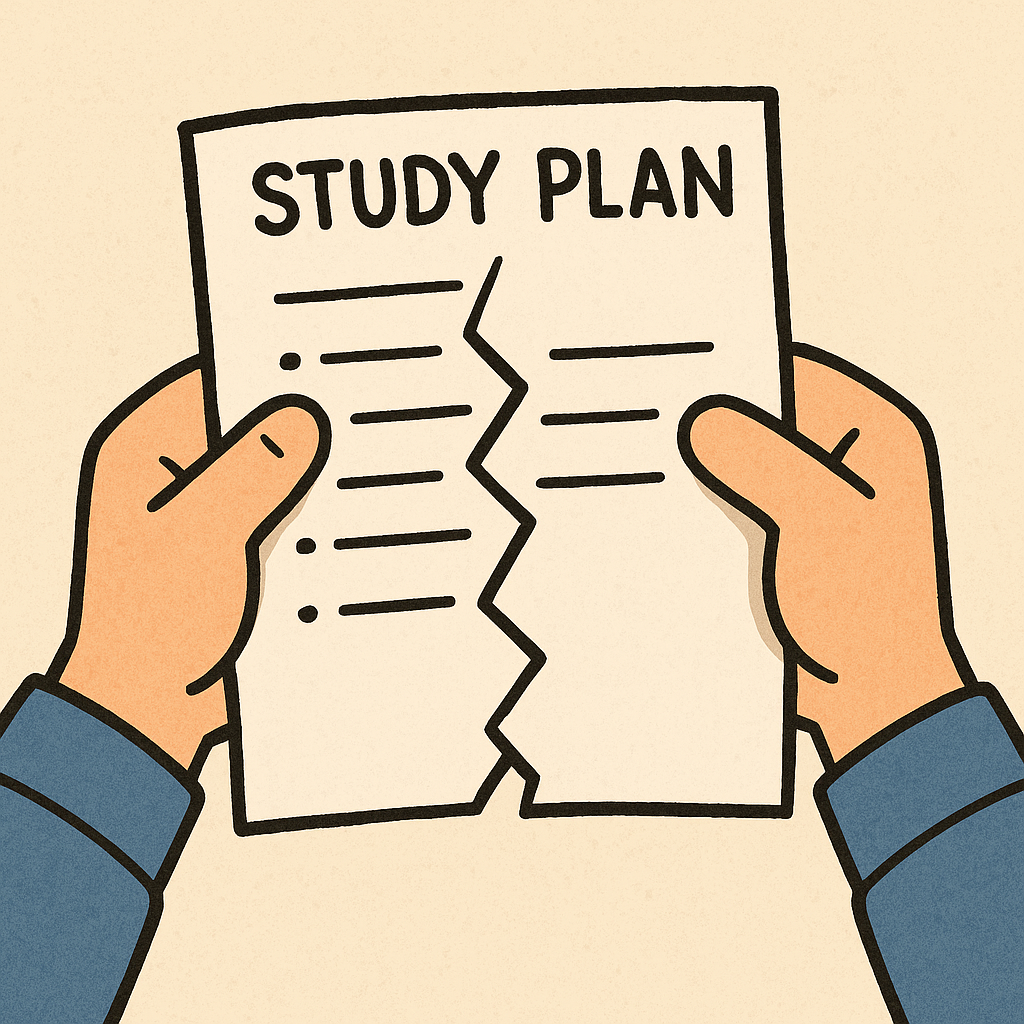
This was also published on the MattPlaysChess Substack. Join me there!
Six months ago, I embarked on what I thought would be a year-long chess improvement journey. Armed with enthusiasm and a structured plan, I divided the year into four quarters with different focus areas. The idea was to build from the fundamentals upward, creating a systematic approach to chess improvement that might serve as a model for other adult improvers.
Now, at the halfway mark, I’ve made the difficult decision to change course. This isn’t a story of failure—rather, it’s a recalibration based on what I’ve learned about myself, my chess, and the improvement process.
What I’ve Done So Far
For the past six months, I’ve followed a week-by-week plan focused primarily on building a solid foundation:
- Basic principles: I reviewed core opening concepts, fundamental tactics like forks and pins, and refreshed my understanding of basic strategic ideas.
- Endgames: I worked through Silman’s Complete Endgame Course on Chessable, drilling the fundamentals of king and pawn endgames, simple checkmates, and other essential endings.
- Tactics: I maintained a consistent tactics regimen, working through resources like Tactics Time 2 on Chessable and Chess Tactics for Champions by Susan Polgar.
- Game analysis: I developed a system for analyzing my own games, trying to extract meaningful lessons from each contest.
- Positional understanding: I studied concepts like pawn weaknesses, closed positions, and space advantages through various Chess.com lessons and YouTube videos.
- Planning and strategy: I worked on candidate moves and general strategic planning through various courses.
Throughout this time, I maintained a consistent playing schedule of 3-4 rapid games per week, using my physical ChessUp 2 board connected to Chess.com. I also tracked my improvement using Noël Studer’s chess improvement score system.
Why I’m Changing Course
After reflecting on the past six months, several factors led me to reconsider my approach:
1. Tournament Performance
Recently, I participated in a tournament that I viewed as a six-month checkpoint. I lost all three games—a disappointing result that was worse than my previous tournament performance. While one bad tournament isn’t definitive proof of stagnation, it did force me to honestly evaluate my progress.
2. The Study Plan Wasn’t Challenging Enough
Looking back at my weekly study logs, I repeatedly mentioned that certain materials felt “too easy” or “basic.” I noticed that when I wasn’t challenging myself, I wasn’t as engaged. When studying feels like going through the motions rather than genuine learning, it’s time to reassess.
3. The Biggest Gains Came From a Simple Routine
The most consistent benefits came from just two activities: daily tactics practice and playing focused rapid games. The elaborate weekly themes, while intellectually interesting, didn’t seem to translate to tangible improvement in my actual play.
4. My Losses Aren’t Coming From Where I Thought
The next phase of my plan was going to focus on advanced middlegame and endgame techniques. However, an honest assessment of my games shows that’s not where I’m losing. Most of my losses stem from calculation errors, missed tactics, and psychological factors—not from a lack of theoretical knowledge.
5. Mental Toughness Matters
In over-the-board (OTB) games, I noticed myself playing timidly—what I describe as “playing scared.” This psychological aspect of chess is perhaps more important than I initially gave it credit for. No amount of theoretical knowledge can compensate for collapsing under pressure.
6. Fundamentals Still Need Work
Despite studying “fundamentals” for months, my calculation abilities still need significant improvement. Perhaps the fundamentals aren’t something you graduate from, but skills that require continuous refinement.
What’s Next
Rather than continuing with my original plan, I’m pivoting to an approach that addresses my actual needs:
- More play, less study: Increasing my playing volume with a focus on quality games where I take my time and practice good thinking habits.
- Mental game training: Working specifically on psychological resilience, managing emotions during games, and playing with confidence.
- Focused calculation practice: Rather than broad tactical themes, drilling calculation accuracy and visualization through progressive exercises.
- Simplified routine: Maintaining the core elements that have worked—daily tactics and regular play—while cutting out the areas that haven’t shown clear benefits.
- Process over results: Evaluating improvement based on the quality of my thinking process rather than just outcomes or ratings.
Lessons Learned
This six-month experiment has taught me several valuable lessons that might benefit other adult improvers:
One-size-fits-all approaches don’t work: Chess improvement is highly individual. What works for one person may not work for another.
Consistency trumps complexity: A simple routine consistently applied yields better results than an elaborate plan followed sporadically.
Honest self-assessment is crucial: It’s easy to follow a plan without questioning whether it’s actually working. Regular check-ins and practical tests (like tournaments) provide necessary reality checks.
The psychological aspect is underrated: Chess is as much a mental sport as an intellectual one. Confidence, resilience, and emotional management are essential skills.
Overplanning can be a form of procrastination: Sometimes, creating elaborate study plans becomes a substitute for the hard work of actually improving.
Final Thoughts
I don’t view the past six months as wasted time. Every game played, puzzle solved, and concept studied has contributed to my chess understanding. The journey has simply revealed that my initial roadmap wasn’t taking me where I needed to go.
Chess improvement isn’t linear, and sometimes the greatest progress comes from acknowledging when your approach isn’t working. By remaining flexible and willing to adapt, I’m confident that the next six months will yield greater growth than if I had stubbornly stuck to my original plan.
As adult improvers, we have limited time and energy to devote to chess. The wise approach isn’t to follow someone else’s blueprint for improvement, but to discover what works specifically for you—even if that means changing course midway through your journey.